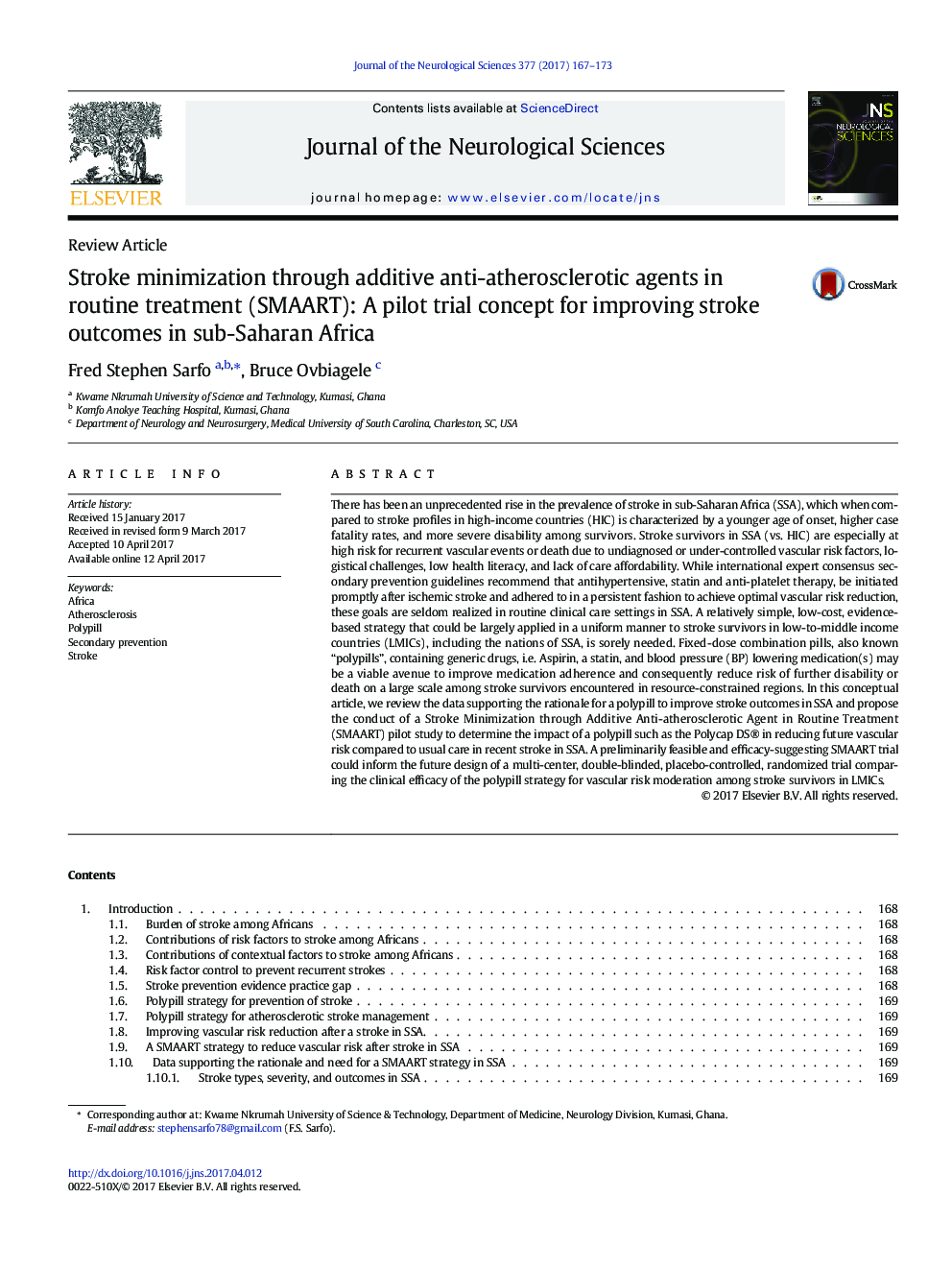| Article ID | Journal | Published Year | Pages | File Type |
|---|---|---|---|---|
| 5502636 | Journal of the Neurological Sciences | 2017 | 7 Pages |
Abstract
There has been an unprecedented rise in the prevalence of stroke in sub-Saharan Africa (SSA), which when compared to stroke profiles in high-income countries (HIC) is characterized by a younger age of onset, higher case fatality rates, and more severe disability among survivors. Stroke survivors in SSA (vs. HIC) are especially at high risk for recurrent vascular events or death due to undiagnosed or under-controlled vascular risk factors, logistical challenges, low health literacy, and lack of care affordability. While international expert consensus secondary prevention guidelines recommend that antihypertensive, statin and anti-platelet therapy, be initiated promptly after ischemic stroke and adhered to in a persistent fashion to achieve optimal vascular risk reduction, these goals are seldom realized in routine clinical care settings in SSA. A relatively simple, low-cost, evidence-based strategy that could be largely applied in a uniform manner to stroke survivors in low-to-middle income countries (LMICs), including the nations of SSA, is sorely needed. Fixed-dose combination pills, also known “polypills”, containing generic drugs, i.e. Aspirin, a statin, and blood pressure (BP) lowering medication(s) may be a viable avenue to improve medication adherence and consequently reduce risk of further disability or death on a large scale among stroke survivors encountered in resource-constrained regions. In this conceptual article, we review the data supporting the rationale for a polypill to improve stroke outcomes in SSA and propose the conduct of a Stroke Minimization through Additive Anti-atherosclerotic Agent in Routine Treatment (SMAART) pilot study to determine the impact of a polypill such as the Polycap DS® in reducing future vascular risk compared to usual care in recent stroke in SSA. A preliminarily feasible and efficacy-suggesting SMAART trial could inform the future design of a multi-center, double-blinded, placebo-controlled, randomized trial comparing the clinical efficacy of the polypill strategy for vascular risk moderation among stroke survivors in LMICs.
Related Topics
Life Sciences
Biochemistry, Genetics and Molecular Biology
Ageing
Authors
Fred Stephen Sarfo, Bruce Ovbiagele,
